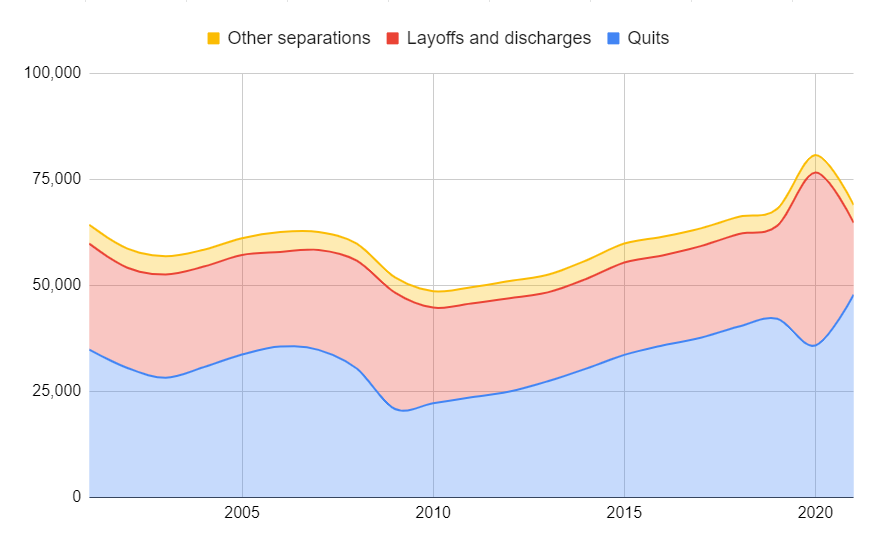
Discounting for Job Separations in Employment Lawsuit Compensation Analyses
April 28, 2022
The Supreme Court Relies on IAMECON Research in Prop 12 Ruling, Paving Way for More Humane Animal Farming
July 27, 2023The plant-based meat alternatives (PBM) market has seen fast growth until last year. The growth of PBM retail sales increased from 19 percent in 2019 to 45 percent in 2020, largely due to the launch of the long-awaited ground beef alternatives, Beyond and Impossible.1 These trends were expected to prevail into the future as PBM investments reached almost $5 billion in 2021. The Boston Consulting Group projected the plant-based protein market as a whole (including meat, seafood, eggs, and dairy) to continuously grow at 8.8 to 14.0 percent annually, between 2019 and 2035.2 A survey of plant-based industry leaders, jointly conducted in 2021 by the Good Food Institute and IAMECON, revealed similar optimism. More specifically, many of these leaders expect that the industry as a whole will grow to almost double what it is today by 2025, will more than double by 2035, and will more than triple by 2045 as summarized in the figure below.

However, recent macroeconomic developments in the US have turned the tide against the PBM industry. In 2021, plant-based meat sales plateaued overall despite the optimism, and this year has already seen a 7.3% decline in sales, comparing May 2022 to May of last year.3
Some industry analysts, puzzled by the observed drop in demand, suggest that the previous spike in demand was temporary, due to the hype effect of newly launched products. Others suggest that the slowdown was temporary and mostly due to supply-side factors, i.e., ingredient shortages and continued supply chain disruptions of the pandemic era. Either way, most analysts agree that some form of a rebound is inevitable with an increasing number of younger and environmentally concerned consumers.4
In this post, we highlight an additional factor that can explain the slowdown in PBM sales in the past year and a half. We believe that record-high inflation rates may have played a significant role in the observed slowdown of PBM demand. In fact, US inflation rose to 8.6 percent in May, the highest in more than 40 years. Surging food prices are also heavily affected, and consumers now pay 10.1 percent more for food on average compared to last year, according to the Bureau of Labor Statistics.5

On the other hand, prices in the PBM market have increased by only 2.4 percent annually compared to an 11.2 percent average increase in conventional meat prices. Considering that PBM products are substitutes for animal-based meat (at least for some), one would expect to see a large drop in conventional meat demand compared to PBMs. However, somewhat surprisingly, we observe the opposite: average customer demand for PBMs has decreased more compared to their meat analogs, as shown below, for May 2022:6

One potential reason for this seemingly counterintuitive consumption pattern lies in the role of PBMs for an average consumer. In particular, two opposing effects are in play here: the substitution effect and the income effect. The substitution effect would imply increased demand for PBMs as PBMs become relatively less expensive compared to meat. The income effect, on the other hand, would suggest that consumers would decrease their consumption of both products, as prices increase across both categories, and most consumers’ purchasing power decreases with inflation (wage increases always come with a lag – if at all for some of the population). Apparently, the latter effect dominates the former and the demand for PBMs has reduced more than that for conventional meat.7 To unpack what is included in the so-called “income effect”, we need to dive deeper.
Sustainable products are typically more expensive than their counterparts (very oddly so – wait for our next post as to why!). As a result, most consumers view them as “luxurious” or “non-essential” consumption goods, and they are the first ones to be dropped when financial constraints are observed.8 This is binding for most US consumers as about 61 percent of US consumers live paycheck-to-paycheck.9
Understanding consumer behavior requires a multi-dimensional approach, and, more likely than not, the observed slowdown is caused by a combination of factors, where prices, new product launches, taste differences, and environmental and moral factors all play an important role. Moreover, it is uncertain how long this inflationary period will continue. Therefore, we might not expect the PBM industry to bounce back immediately, but we do expect it to maintain its crucial role in entrenching a more sustainable food system in the long run. As such, we expect its eventual recovery.
- https://gfi.org/marketresearch/
- Many analysts from consulting groups and financial institutions, such as Credit Suisse, Barclays, and EY-Parthenon agree on similar numbers. The Jefferies, BCG, Credit Suisse, Barclays, and EY-Parthenon reports can be found at the links below, shown in respective order:https://www.jefferies.com/CMSFiles/Jefferies.com/Files/Insights/The_Great_Protein_Shakeup.pdf
https://www.bcg.com/publications/2021/the-benefits-of-plant-based-meats
https://www.investmentbank.barclays.com/our-insights/carving-up-the-alternative-meat-market.html (subscription required)
https://www.ey.com/en_us/agribusiness/when-might-the-term-alternative-protein-be-obsolete
- https://www.alt-meat.net/refrigerated-alt-meat-sales-pull-down-total-may
- https://www.fooddive.com/news/plant-based-meat-sales-slowdown/610268/ and https://gfi.org/wp-content/uploads/2022/03/2021-U.S.-retail-market-insights_Plant-based-foods-GFI.pdf
- https://www.bls.gov/news.release/cpi.nr0.htm
- https://www.provisioneronline.com/articles/112791-meat-sales-volume-under-pressure-as-inflation-persists-in-may
- A very similar phenomenon is happening in the automotive industry, electric vehicles are becoming more expensive with high inflation and hence it plays as a big barrier to going greener. See a recent article by Bloomberg at https://www.bloomberg.com/news/articles/2022-06-17/inflation-turns-evs-into-luxury-items-threatening-broader-electric-shift
- Deloitte’s Global State of the Consumer Tracker also reported a decline in the consumption of sustainable products across many major economies worldwide https://www2.deloitte.com/us/en/insights/industry/retail-distribution/consumer-behavior-trends-state-of-the-consumer-tracker/sustainable-products-and-practices-for-green-living.html
- https://www.pymnts.com/study/reality-check-paycheck-to-paycheck-consumer-planning-financial-emergency/


